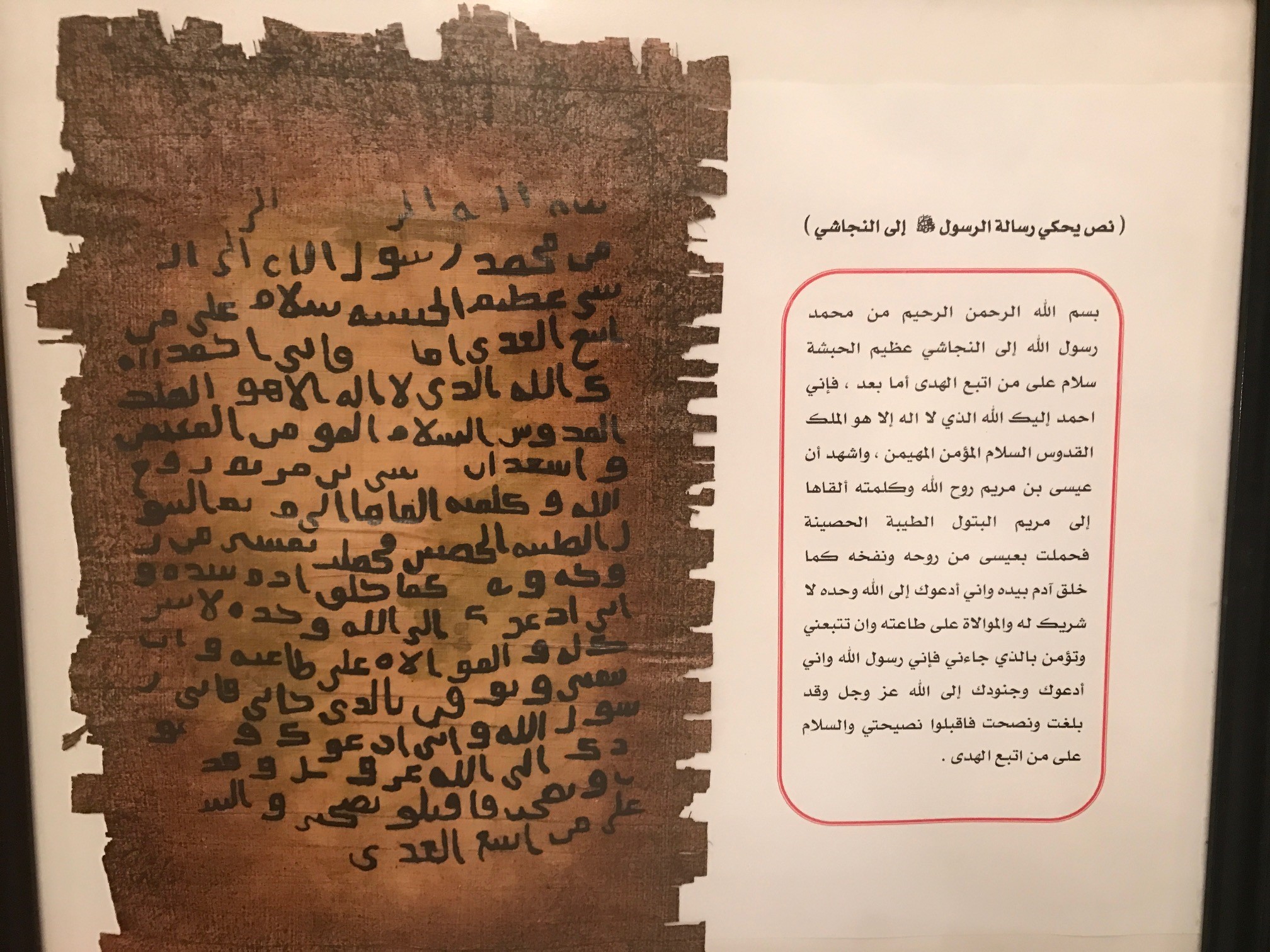Pictures of Prophet Muhammad's (PBUH) letters sent to rulers

After the Treaty of Hudaybiyyah, the prophet (PBUH) invited different rulers into the fold of Islam.
Web Desk - Prophet Muhammad (Peace Be Upon Him) after establishing peace between Muslims and the Quraysh of Makkah through the Treaty of Hudaybiyyah started sending letters to rulers in and around Arabia, inviting them into the fold of Islam.
According to Islamic traditions, Prophet Muhammad (PBUH) sent his messengers with these letters to Heraclius, emperor of the Byzantine Empire; Chosroes II, king of Persia; Negus of Ethiopia; Al-Muqawqis, ruler of Egypt.
In a letter sent Al-Muqawqis of Egypt, the prophet (PBUH) invited him to Islam, saying that if he does so, Allah will double his reward.
.jpg)
The prophet (PBUH) also cited Surah al-Imran (3:64), “O People of the Scripture, come to a word that is equitable between us and you - that we will not worship except Allah and not associate anything with Him and not take one another as lords instead of Allah.’ But if they turn away, then say: ‘Bear witness that we are Muslims [submitting to Him].”
.jpg)
The prophet (PBUH) also sent letters to Himyarite Harith, prince of Yemen, Munzir ibn Sawa, chief of Bahrain, and Harith bin Al-gassani, governor of Syria.
.jpg)
The letters of the prophet (PBUH) inviting rulers across Arabia to Islam were always concluded with the statement, “If turn away, you will bear the sin of your followers.”
.jpg)
The rulers who did not pay heed to this message suffered. According to historic Islamic narratives, Chosroes of Persia tore the letter. When the prophet (PBUH) heard about the incident, he promised the destruction of Chosroes and the emperor died soon after, and consequently his empire weakened. The Persian empire was conquered during the time of the second caliph.
.jpg)
The original copies of these letters are kept in the Medina Museum in Saudi Arabia, while some of these letters are kept in a museum in Istanbul. Istanbul also houses one of the copies of the original Quran made by Caliph Usman (RA).
.jpg)

This article originally appeared in alarabiya.net

